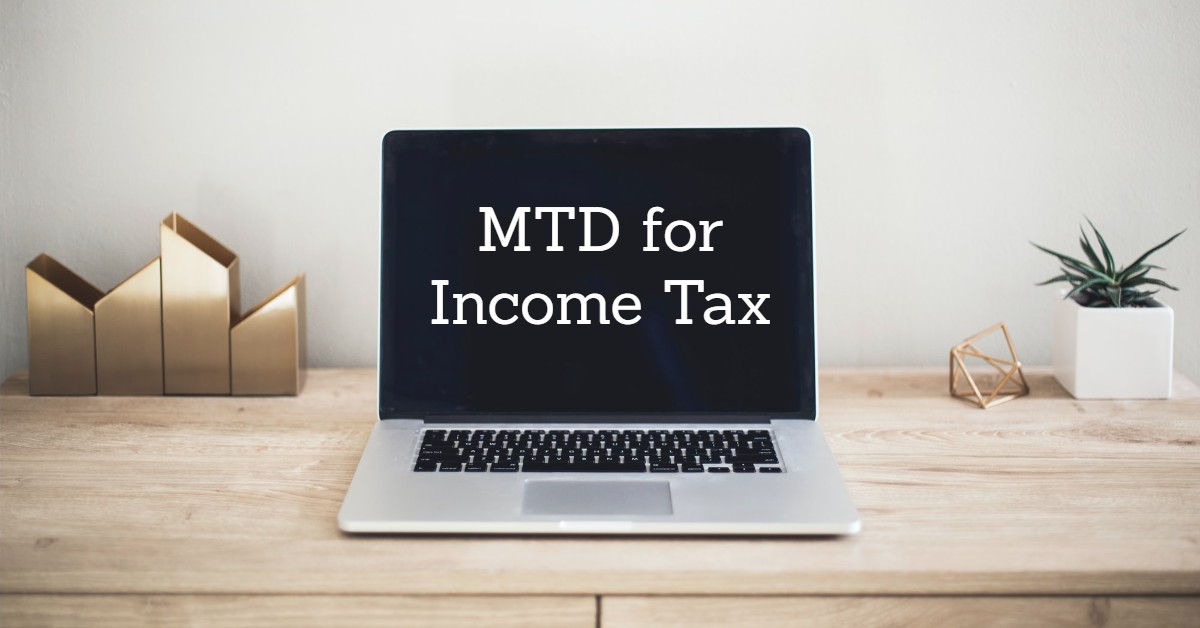Making Tax Digital (MTD) for Income Tax Self-Assessment (ITSA)
What is Making Tax Digital (MTD) for Income Tax Self-Assessment (ITSA)?
This article has been updated for the changes announced by HMRC in December 2022.
Individuals who are subject to income tax on the profits of their trade or property business will be required to:
- keep their accounting records electronically and,
- file quarterly returns to HMRC with details of their income and expenditure.
- A final end of period statement will then be submitted after the tax year, to complete the individual’s tax affairs.
This change is all about when information is reported to HMRC. The timing of when tax is due and payable will not change, based on what we know so far.
Timetable for MTD for Income Tax Self-Assessment
- HMRC announced in December 2022 a delay in the implementation of MTD for ITSA which was due to be introduced from April 2024, and it will now be mandatory from April 2026. It will apply to sole traders and landlords with gross income over £50,000 (previously the threshold announced was £10,000).
- Sole Traders and landlords with gross income of between £30,000 and £50,000 will be subject to the new rules from 6 April 2027.
- All businesses which were in existence immediately before 6 April 2025 will join MTD for ITSA from 6 April 2026, regardless of their accounting period end.
- The government is consulting on how partnerships and all other taxpayers with income levels of less than £30n000 will be dealt with under MTD ITSA.
Making Tax Digital for Income Tax Self-Assessment Exemptions
Income threshold
- In order to be within scope of MTD ITSA, the individual must have total business and/or property income above £50,000 per year.
The threshold of £50,000 applies to gross income or turnover, not profit. This applies to the total gross income, where the individual or entity has more than one trade or property business.
For example: if the individual has £10,000 of rental income and £41,000 of sales from a sole trader business, they will exceed the limit and fall within MTD ITSA.
Digital exclusion
Individuals should not have to follow the MTD for Income tax rules if any of the following apply:
- It’s not reasonably practicable for them to use digital accounting tools to keep their business records
- or submit quarterly returns due to age, disability, remoteness of location
- or any other reason (often referred to as ‘digital exclusion’).
- They are subject to an insolvency procedure.
- The business is run entirely by practising members of a religious society, or order, whose beliefs are incompatible with using electronic communications or keeping electronic records.
Why do I need to think about this now?
This is a huge information reporting change for people that fall within these rules. Especially if in the past, you have just summarised your income and expenses once a year, or have just dropped off a bag of invoices and receipts for your return to be prepared on that annual basis.
As the records need to be kept digitally, with quarterly returns submitted, reporting will need to be completed in a timely fashion to avoid penalties becoming payable.
How can Shaw Austin help you now?
If you think there is any chance that you will fall within MTD for Income Tax Self-Assessment, then take action now! It is important that you identify the approach to this change that will work for you and your business.
- The start date may sound far away, however, you will benefit from making plans now.
We can get you on track with maintaining those digital records, ready for when the quarterly returns are required. The Shaw Austin team is experienced in digital accounting, be it with cloud software or excel sheets.
Shaw Austin partner with QuickBooks, Xero and Freeagent and are able to make sure you are using the product well to your benefit.
Give us a call now to discuss your MTD needs further.
Related Articles
Making tax digital (MTD) for VAT changes from 1 April 2022
Making Tax Digital Software
Shaw Austin are a firm of Chartered Accountants based in Chester supporting independent business throughout the UK. We take the headache out of business accounting and taxation by providing our clients with a personal service.
This article includes tax rates and allowances correct on date of publishing – tax rates and allowances can change from year to year. This is a general article to assist readers. Professional advice should always be taken in respect of your personal circumstances.
Updated March 2023.

